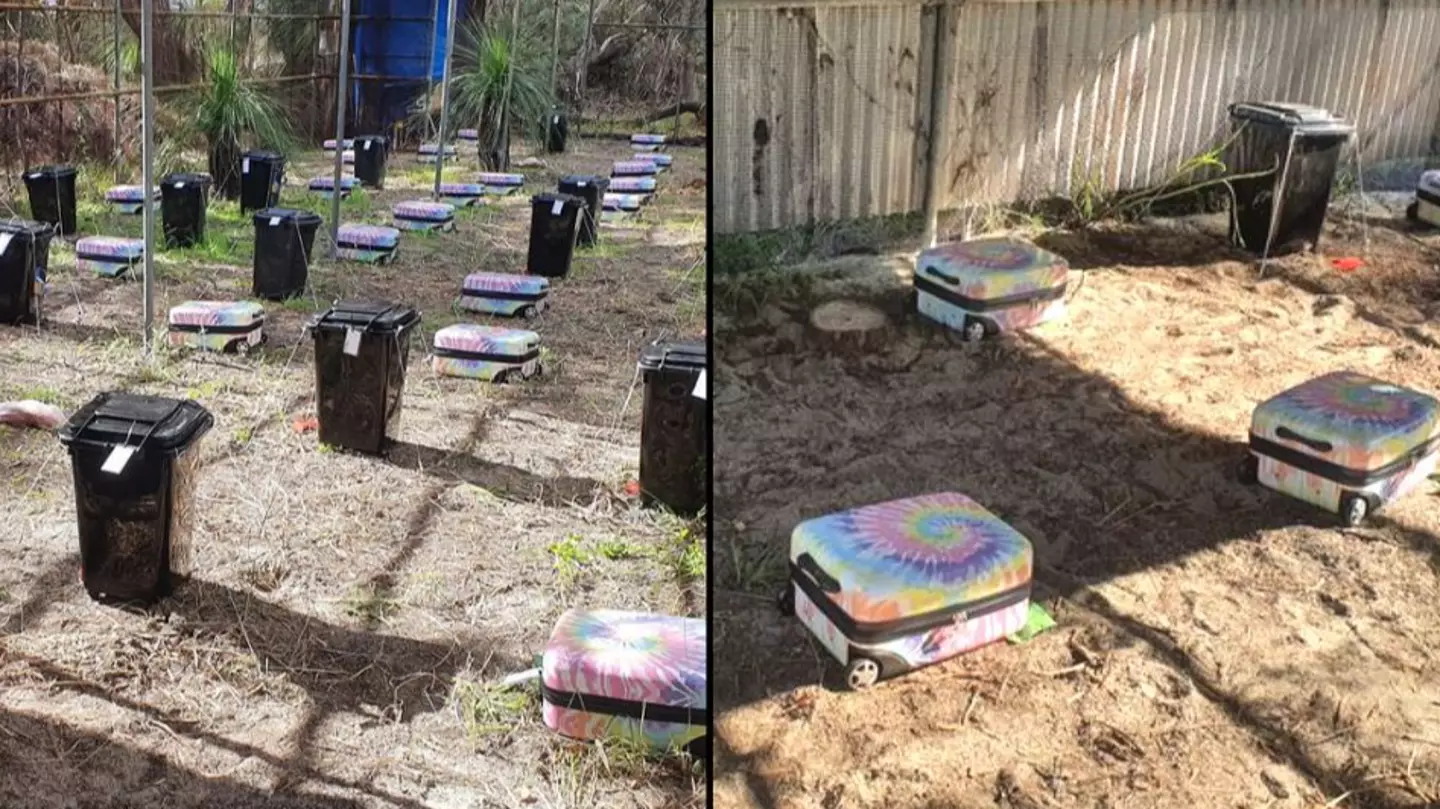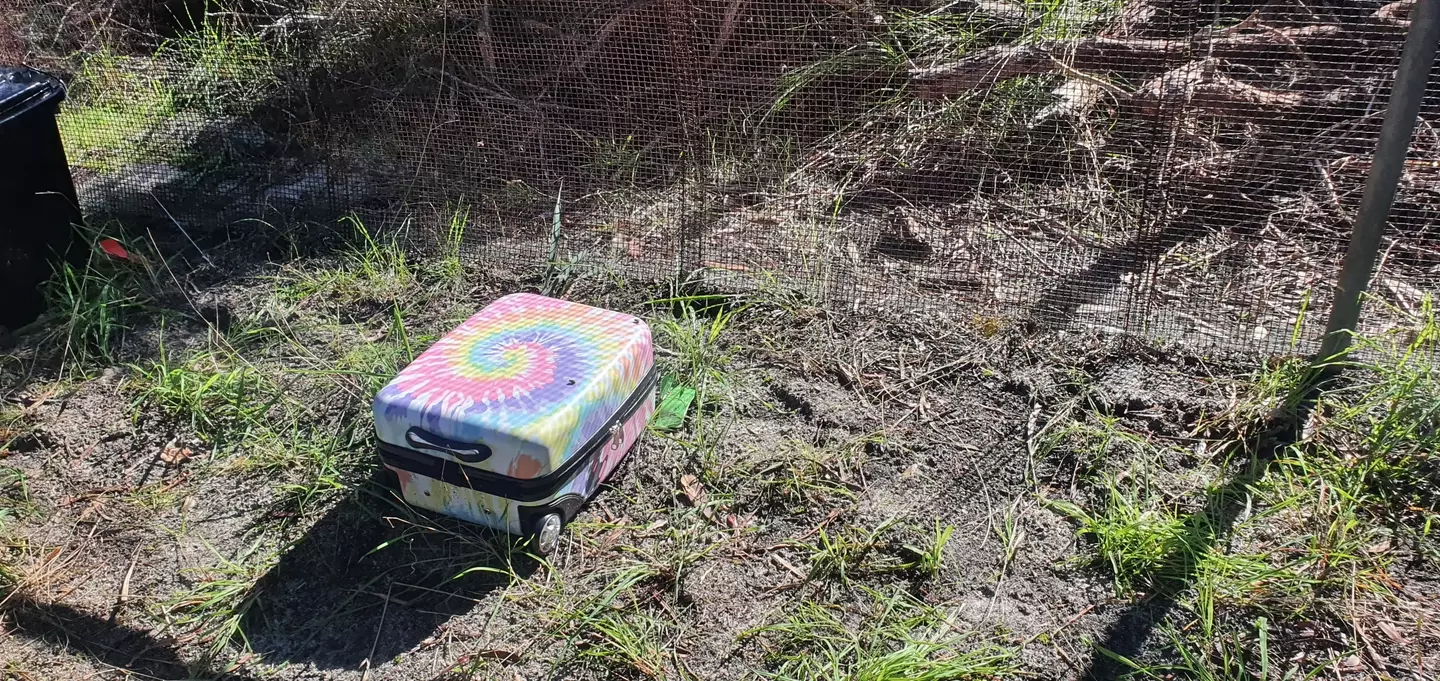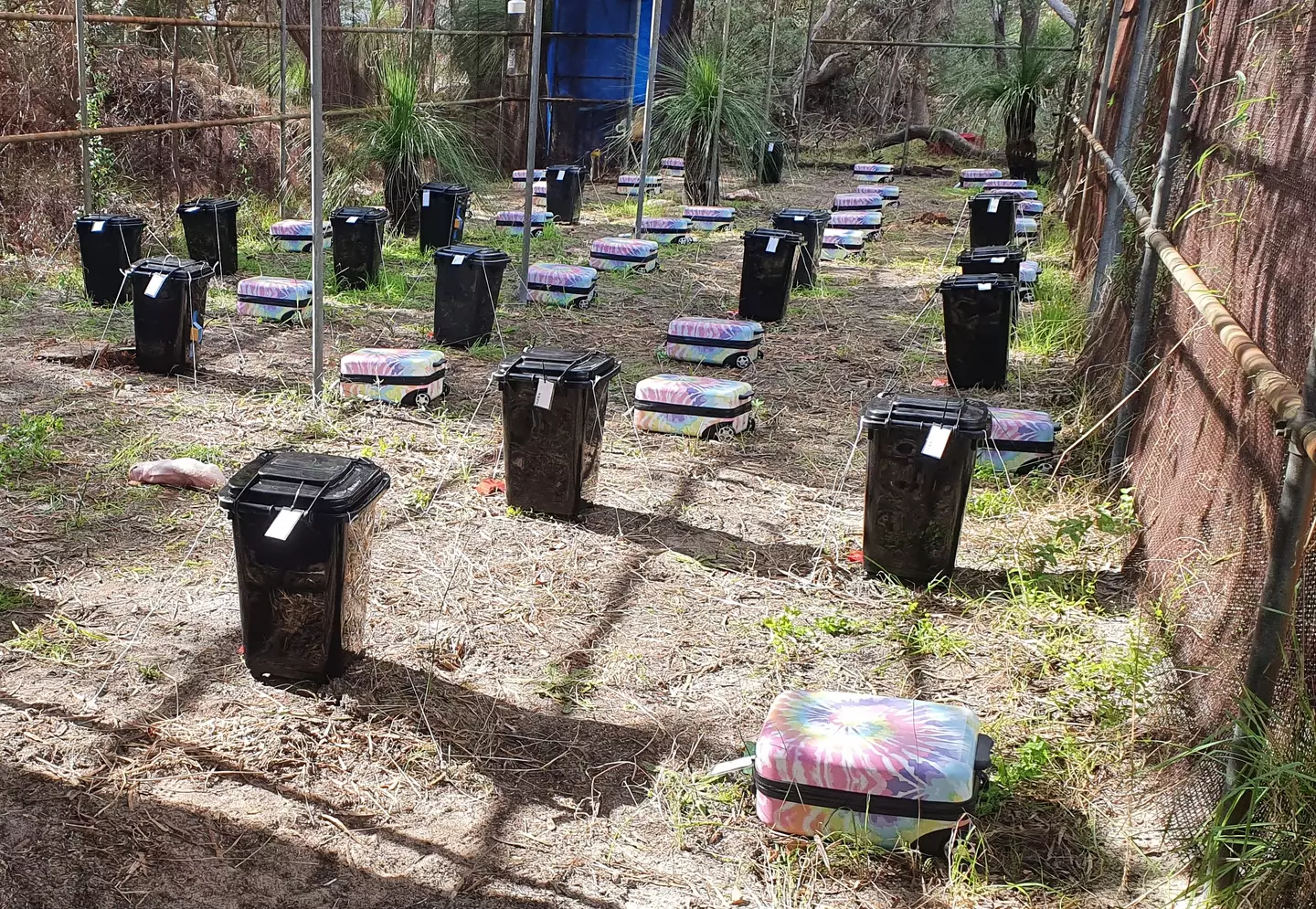
A study involving nearly 70 animal remains placed in colourful suitcases is taking place in Western Australia in what is the world's largest experiment of its kind, according to its researchers.
The decomposing bodies of stillborn piglets were individually put into suitcases as well as wheelie bins late last month.
The point of this study is important as researchers hope its work on the decomposition process will help crime scene investigators when reconstructing murder events.
Researchers are currently measuring how any temperature and humidity changes impacts the dead animals both inside and outside the suitcase.
Advert

The chemical changes of the bones and body will also be looked at, alongside microbiological changes.
You may be thinking why suitcases and wheelie bins?
Well, according to its researchers, forensic case history and crime news show a large proportion of dead bodies placed in tight environments such as suitcases, wheelie bins, car boots, fridges and freezers.
There are many examples of murderers using these methods of hiding a body to try and cover their tracks.
Advert
Paola Magni, Senior Lecturer in Forensic Science at Murdoch University, has explained why criminals decide to leave bodies in these so-called 'limited access environments'.

She said: "This happens because the perpetrators try to avoid an easy discovery by the authorities and/or because they need something in which they can temporarily store and move the body from place to place: from the primary crime scene where the death event/murder happens, to the secondary crime scene, where the body is left or discovered.
"Last year the remains of a man were found in a wheelie bin dumped in a dam near Perth, and a few weeks ago the remains of two kids have been found in two suitcases in New Zealand, confirming that this type of research is much needed."

Advert
These limited access environments like suitcases affects the decomposition process of the body, and especially the accessibility to insects, which are slowed down by a physical barrier.
This alteration of the decomposition process impacts the ability of the forensic pathologist and forensic entomologists to estimate the time since death - a crucial bit of data to help determine the timeline of events.
Dr Mangi said: "Time is crucial in the reconstruction of the events, to pinpoint people, places and motives. A forensic pathologist has a short window of about three days since the death to estimate the time since death, while insects can be present and provide information for days, months and years.
"The knowledge of the dynamics of the insects in a situation of an extreme environment like a suitcase or wheelie bin allows us to provide more information to the law enforcement to close a case and frame the culprit."